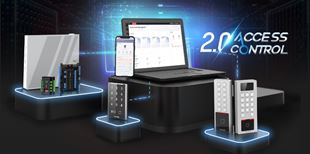Many security system integrators are not providing the specialist IT support now needed by end users to integrate their access systems into their IT environments, so manufacturers have begun offering services that make implementations and integrations easier. At the same time, manufacturers face a dilemma because taking over the role of integrator is not scalable. This will push them to create products for off-the-shelf integration that make implementations in IT networks as easy as possible.
The result is, according to Nedap, that, due to lack of training or investment in IT experts, many integrators are implementing fewer security systems, and those they have integrated are faltering. The growing number of cloud-based security solutions also means that many clients will be looking to buy installation-only services.
Much depends on how willing the integrators are to adapt their offering and invest in the training their people need. Here, Nedap makes five suggestions that security system integrators might take to take them to the next level in this highly competitive game.
1. Invest in strong IT knowledge
In access control and the wider security business, TCP/IP has become the standard for communication between devices and central server applications. Which means every technician needs to know how to connect an IP device to the client’s network and configure it in the central application. And they need to understand how active network components work in combination with the application.
But this is just a starting point when it comes to IT knowledge – there’s so much more that integrators now need to be proficient in. For example, knowledge about the clients’ LAN, WAN and VPN networks and how to set up a central server application with or without virtualisation, redundancy and back-up system. Encryption skills, hashing, AES128, TLS1.2 and key management are all important too. According to Nedap, most security system integrators have invested in one or two IT experts but, in practice, not enough to fulfil clients’ expectations.
2. Provide implementation skills
Integrators often see it as a necessary evil to translate a client’s requirements into security or access control applications. But can actually be a valuable opportunity to distinguish an integrator from the competition. It demands a depth of experience and product knowledge that can only be provided by experts. Without such experts, implementations are carried out in a standard manner, which can leave the client feeling that their needs have neither been listened to nor met.
3. Choose a small but rich portfolio
Choosing the right products that scale easily for growing enterprises is not an easy task. Integrators not only need to consider the scalability of the system, but also the potential need for increased functionality or connectivity with other systems.
4. Add value to clients’ businesses
Increasing the value that an integrator offers to both existing and new clients is a great way to grow the business, increase profits and fend off competitors. Setting up access control reports, for example, can give the client insight into visitor flow during peak hours. This kind of added value consultative service can immediately differentiate a company from its competition.
5. Enter into the cloud
The low and mid segment of the security market is already moving towards plug and play cloud-based solutions that need no system integration or IT skills. What remains is the need for installation and maintenance services, which reduces the profit opportunity and value of system integrators. A next-level approach is for the integrator to sell cloud-based security services , in order to capture and retain clients’ loyalty.
Knowledge and versatility is key
The upshot is that, to survive and grow as a security system integrator, it is vital to respond to the market’s ever-changing trends, technological developments and client needs. To ensure an integrator is ready to adapt and provide the services clients are looking for, it is also crucial to provide the essential staff training.


















